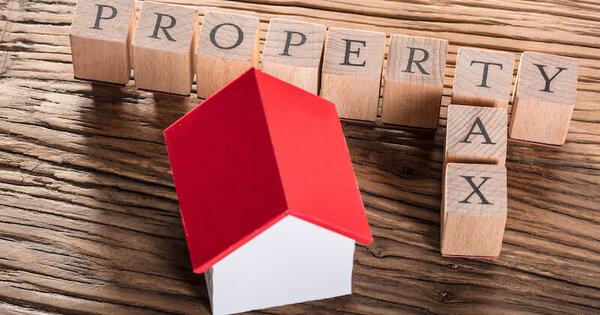Advertisement
OPINIONS
How to Calculate Property Tax in 2022 with Annual Value and Property Tax Rate
Property tax to be paid = AV of the property x Property Tax Rates
In the recent Budget 2022 announcement on 18 Feb 2022, Minister Lawrence Wong said that the government will be raising property taxes starting next year. To calculate your annual property tax, you’ll need to multiply the annual value (AV) of your property with the property tax rates that apply to you.
Here’s a breakdown of the annual value of your property, raised property tax rates, property tax formula and case studies on how to calculate the property tax based on different AVs and the tax rates for owner-occupiers and non-owner occupiers.
What is Annual Value (AV)?
The AV is determined by comparing the annual rental rates for similar or comparable properties on the HDB and URA websites for flats and private properties respectively.
Source: IRAS
You may estimate the AV of your property by multiplying the monthly rent by twelve (number of months in a year).
Source: IRAS
To find out the AV of your property, simply log onto mytax.iras.gov.sg with your Singpass. It’s free!
If you’re hoping to find out the AV of a property that isn’t under your name yet, there’s also a Check Annual Value of Property digital service that you can use, though you’ll have to pay $2.50 for each search. It’s payable by VISA or MasterCard (credit/debit card) or eNETS (Direct Debit).
How does your property’s annual value affect your property tax?
As a component used in the computation of the property tax, the amount payable to IRAS is calculated by multiplying the AV of the property with the property tax rate that applies to you.
How to calculate your property tax
Property tax to be paid = AV of the property x Property Tax Rates
What’s your property tax rate?
Source: Ohmyhome
Currently, the tax rate on owner-occupied and non-owner-occupied residential properties is applied on a progressive scale. All other properties are taxed at 10% of annual value. You may find the full breakdown of the IRAS property tax scale here.
Current owner-occupier property tax rate
Source: IRAS
Case study 1: Alan and Jane have a residential property with an AV of $36,000
Based on this value, their property tax works out to be $1,120 using the prevailing tax rate of 4% for 2022 which is payable by January 2023. With the hike announced on 18 February 2022, their property tax will increase to $1,180 in 2023 and $1,240 in 2024 progressively. You may obtain the property tax table for 2023 and 2024 from IRAS.
Year 2022: ($8,000 x 0%) + ($28,000 x 4%) = $1,120
Year 2023: ($8,000 x 0%) + ($22,000 x 4%) + ($6,000 x 5%) = $1,180
Year 2024: ($8,000 x 0%) + ($22,000 x 4%) + ($6,000 x 6%) = $1,240
Current non-owner occupier property tax rate
Source: IRAS
Case study 2: Barry and Grace has a non-owner occupier property with an AV of $36,000
Based on this value, their property tax works out to be $3,720 using the prevailing tax rate of 10% for 2022 which is payable by January 2023. With the hike announced on 18 February 2022, their property tax will increase to $4,260 in 2023 and $4,800 in 2024 progressively. You may obtain the property tax table for 2023 and 2024 from IRAS.
Year 2022: ($30,000 x 10%) + ($6,000 x 12%) = $3,720
Year 2023: ($30,000 x 11%) + ($6,000 x 16%) = $4,260
Year 2024: ($30,000 x 12%) + ($6,000 x 20%) = $4,800
Our verdict
The resilient nature of the property market has given a rise in property values over the years. Despite the pandemic, the Singapore property market has been a viable investment in a politically stable environment.
This is especially true in the luxury segment, in the Core Central Region (CCR). There have been a growing number of affluent property buyers and investors purchasing properties above the $15 million mark.
The revision in the property taxes are timely. It is a form of wealth tax that ensures fairness and equality. The main objective is not to penalize those that are wealthy, but to aid the society as a whole in the long run, by having the necessary funds for public funding.
Comments
366
0
ABOUT ME
Your one-stop property solution: Buy. Sell. Rent. Renovate. We’ve got you covered.
366
0
Advertisement
No comments yet.
Be the first to share your thoughts!
